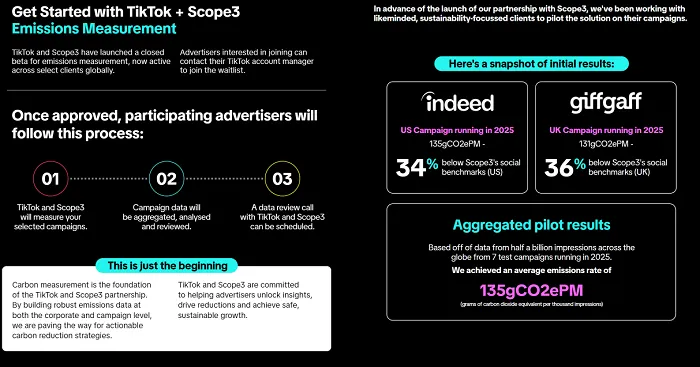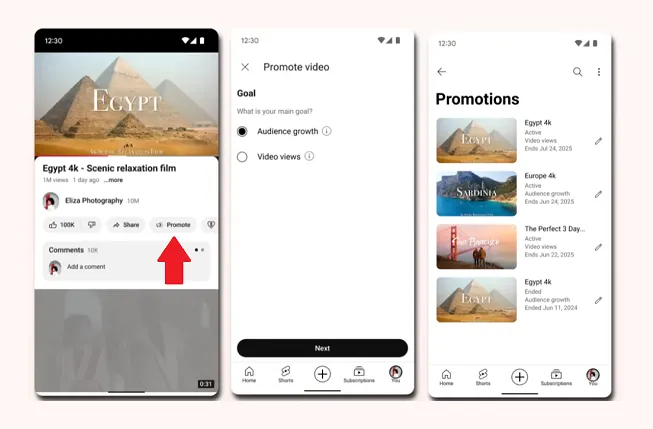Stop saying your company is a family: 9 messaging fixes for leadership comms
Communicators and other professionals flagged corporate lines they hate. Here’s how to rewrite the script. Internal comms misfires erode trust, morale and motivation, and cause more than a few eyes to roll. So, I posed this question to my LinkedIn network: “What’s something you HATE to see in messaging from executive leadership to employees?” The […] The post Stop saying your company is a family: 9 messaging fixes for leadership comms appeared first on Ragan Communications.

Communicators and other professionals flagged corporate lines they hate. Here’s how to rewrite the script.
Internal comms misfires erode trust, morale and motivation, and cause more than a few eyes to roll. So, I posed this question to my LinkedIn network: “What’s something you HATE to see in messaging from executive leadership to employees?”
The flood of replies was swift, scathing and incredibly useful. Common themes emerged: empty platitudes, vague promises, corporate jargon and performative empathy. But collective venting aside, there is a path forward.
So, let’s flip the script.
Here are nine phrases to retire from your leadership vocabulary and what to say instead, with insights from communication coach Joel Schwartzberg, author of “The Language of Leadership” and “Get to the Point!”
Don’t say: “We’re a family.”
Say instead: “We’re a team, and we’ll support each other professionally in these ways.”
This phrase may be well-meaning, but it’s often used as a smokescreen to justify poor work-life balance, and several commenters flagged it as off-putting.
As one commenter put it, “If they say they’re a family, I assume it’s a highly dysfunctional one with at least one uncle no one wants at the Thanksgiving table.” Another added, “Nothing says ‘we value you’ like unpaid overtime and no boundaries.”
If you want to inspire loyalty, skip the metaphors. Be explicit about the support structures in place and what collaboration truly looks like. Clear roles, healthy boundaries and mutual accountability go a lot further than sentimental shorthand.
Don’t say: “We’re tightening our belts.”
Say instead: “Here’s how we’re cutting costs across the board — and what we’re doing to protect jobs.”
“Trite phrases sound conversational, but they can also sound inauthentic or make it seem like you’re trying to avoid details,” Schwartzberg warns. “Being direct makes a significant difference in your impact, especially when you’re communicating solutions and their intended effects.”
As he adds, “Do you want your airplane’s pilot to say, ‘We’ll get through this storm in one piece’ or ‘We’re going to climb above the clouds to avoid turbulence from the storm’?”
Don’t demand: “We need you to give 110%.”
Say instead: “Would you consider trying XYZ?” or “What obstacles are in your way?”
This phrase is a fast track to burnout and even resentment. When pressure mounts, people don’t need to be told to sprint harder; they need support to run smarter.
“When there’s a problem to be solved, leaders build trust when they communicate from the perspective of being among colleagues, not above them,” says Schwartzberg. “Avoid generic or trite directives. Instead, solicit their help and insight to overcome the obstacle.”
Don’t just say: “Keep up the good work!” or “Thanks for all you do.”
Also say: “Your work on [specific project] made a real impact [in this specific way].”
“The more specific you are, the more memorable and meaningful your words will be,” says Schwartzberg. “Try to include a specific ‘what’ and ‘why’ that only applies to the person you’re addressing.”
Generic praise often feels hollow. Employees want to know that leadership is paying attention, and that their efforts are tied to real outcomes.
Don’t use jargony phrases like: “deep bench,” “go hard in the paint,” or “move the needle.”
Say instead: Literally anything in plain English.
Clichés can be exclusionary, often meaningless and tone-deaf. And worse, some common business jargon reads as cultural appropriation, like “guru,” “ninja” or “powwow.” Even if no one in your organization is outright offended, is it worth the risk of presenting as disrespectful (or, to your Gen Z employees, cringey)?
And regardless of whether it’s a sports metaphor, a vague buzzword or something ripped from another culture, jargon is the enemy of specificity, and in most cases it only risks obfuscating the point and alienating the very people you’re trying to reach.
Don’t say: “We hear you.” (If you don’t act.)
Say instead: “Here’s what you told us, and here’s what we’re doing about it.”
Employees know when “we hear you” is a placeholder for “we’re doing nothing.” If you’ve solicited feedback, close the loop with action. And if action’s not possible yet, explain the delay and share the next steps. Saying nothing isn’t going to help your executive team out, but saying something empty is worse.
Don’t say: “This was a hard decision for me.”
Say instead: “This was a necessary decision, and I take responsibility for it. I’m here to support you through what comes next.”
“When sharing unwelcome news, some leaders overemphasize the angst of decision-making versus how staff will be affected by the resulting hardships,” Schwartzberg explains. “These communications may be well-intended, but they redirect compassion away from the people affected and toward the leader. That’s the opposite of empathy. ‘Please feel for me’ instead of ‘I feel for you.’”
Oof — but accurate. Leadership benefits from taking accountability, not parading their own discomfort.
Don’t say: “As you all know…”
Say instead: “Here’s what’s changing, and here’s what it means for you.”
Inform, don’t make assumptions and cut the preamble. Lead with the change, then offer context and action items. Delaying your point will only risk losing the attention of your team.
Don’t conflate leadership with the efforts of the entire organization.
Say instead: “As an organization, we …”
Several commenters pointed out that executives have an unfortunate habit of conflating leadership with the organization and excluding the rest of the employees in the process. Now, leadership should take ownership for their decisions, particularly ones with negative outcomes, but when discussing collective progress and organization-wide wins and policies, acknowledge the effort of everyone working to make it happen.
“Always remind your teams how vital they are to progress and success,” says Schwartzberg. “Talking solely about ‘what the leadership team did’ is sometimes necessary, but it excludes staff. Talking about ‘what the organization will do’ is inclusive and more likely to generate enthusiasm and participation.”
Even in tough times, inclusion inspires engagement. Don’t reduce your workforce to bystanders in their own company.
To sum up: Ditch the jargon, ask questions, take responsibility and lead like you actually work there.
Executives and their comms teams don’t have to ace every message, but everyone benefits when they are honest, specific and human. Employees want to be spoken to like adults, trusted like professionals, and treated like partners in the work ahead.
The post Stop saying your company is a family: 9 messaging fixes for leadership comms appeared first on Ragan Communications.























![Brand and SEO Sitting on a Tree: K-I-S-S-I-N-G [Mozcon 2025 Speaker Series]](https://moz.com/images/blog/banners/Mozcon2025_SpeakerBlogHeader_1180x400_LidiaInfante_London.png?auto=compress,format&fit=crop&dm=1749465874&s=56275e60eb1f4363767c42d318c4ef4a#)

![How To Launch, Grow, and Scale a Community That Supports Your Brand [MozCon 2025 Speaker Series]](https://moz.com/images/blog/banners/Mozcon2025_SpeakerBlogHeader_1180x400_Areej-abuali_London.png?auto=compress,format&fit=crop&dm=1747732165&s=beb7825c980a8c74f9a756ec91c8d68b#)
![Clicks Don’t Pay the Bills: Use This Audit Framework To Prove Content Revenue [Mozcon 2025 Speaker Series]](https://moz.com/images/blog/banners/Mozcon2025_SpeakerBlogHeader_1180x400_Hellen_London.png?auto=compress,format&fit=crop&dm=1747758249&s=9f3c5b1b7421f862beace1cb513053bb#)
























![The 11 Best Landing Page Builder Software Tools [2025]](https://www.growthmarketingpro.com/wp-content/uploads/2024/04/best-landing-page-software-hero-image-1024x618.png?#)




































![The Most Searched Things on Google [2025]](https://static.semrush.com/blog/uploads/media/f9/fa/f9fa0de3ace8fc5a4de79a35768e1c81/most-searched-keywords-google-sm.png)
![What Is a Landing Page? [+ Case Study & Tips]](https://static.semrush.com/blog/uploads/media/db/78/db785127bf273b61d1f4e52c95e42a49/what-is-a-landing-page-sm.png)































![Social media image sizes for all networks [June 2025]](https://blog.hootsuite.com/wp-content/uploads/2023/01/Social-Media-Image-Sizes-2023.png)

![AI can boost conversions from your web page — HubSpot’s CMO shows you how [tutorial]](https://knowledge.hubspot.com/hubfs/ai-1-20250605-395473.webp)
![The state of inclusive marketing in 2025 [new data + expert insight]](https://www.hubspot.com/hubfs/inclusive-marketing-report.webp)




















